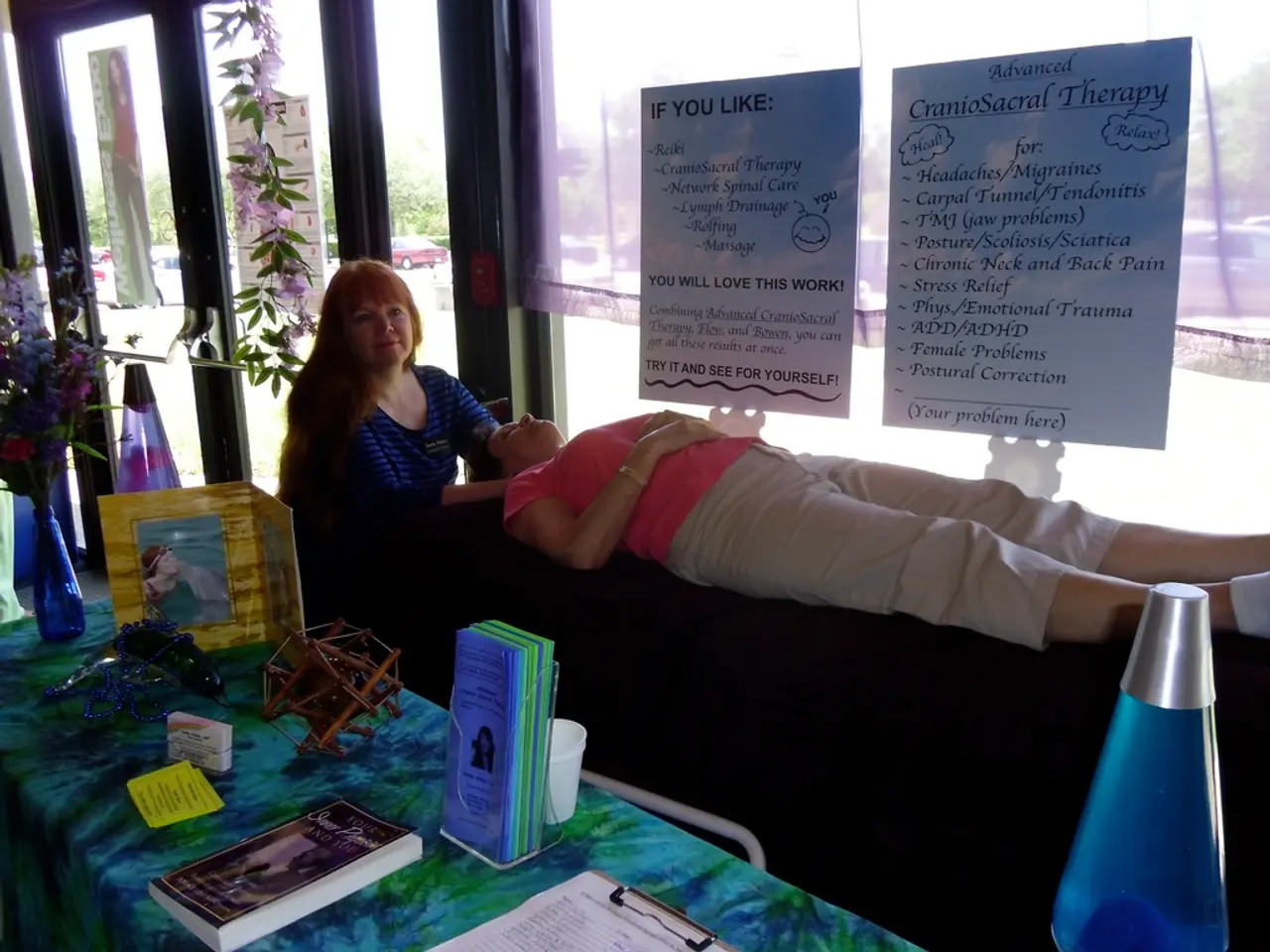Can depression naturally resolve without intervention?
Depression, a serious mental health disorder, can cause feelings of hopelessness, changes in appetite or weight, and a lack of energy. This article will explore the factors that influence recovery length and chances, as well as the treatment options available.
Factors Influencing Recovery Length and Chances
Depression recovery can be influenced by a variety of factors, including biological, genetic, environmental, and socioeconomic factors.
Biological Factors
Changes in neurotransmitter levels, particularly serotonin and norepinephrine, can affect symptom severity and recovery. Differences in brain regions related to emotion regulation can also impact recovery. Hormonal changes, such as those associated with thyroid dysfunction or postpartum hormonal shifts, can complicate recovery.
Genetic Predisposition
A strong family history of depression can make recovery more challenging. Genetic variations can influence stress response and recovery potential.
Environmental Triggers
Chronic stress and trauma, as well as social isolation, can lengthen recovery time. Co-occurring mental health disorders, such as anxiety or PTSD, can complicate treatment and extend recovery time.
Socioeconomic Factors
Financial instability, unemployment, or poor living conditions can exacerbate symptoms and delay recovery. Access to treatment and support is crucial in overcoming these barriers.
Impact on Recovery Without Treatment
Recovery without treatment is generally less likely and more prolonged due to the complex interplay of these factors. Professional treatment typically involves a combination of medication, therapy, and lifestyle changes tailored to the individual's needs, which can significantly improve recovery outcomes.
Recovery Chances Without Treatment:
- Challenging: Recovery without treatment is more difficult for individuals with severe symptoms, co-occurring disorders, or significant life stressors.
- Prolonged: The absence of professional support can extend the duration of depression.
- Variable: Outcomes vary widely based on individual circumstances and support systems.
Treatment Options for Depression
Treatment options for depression include medications, psychotherapy, and other treatments.
Medications
Antidepressants, such as selective serotonin reuptake inhibitors (SSRIs), serotonin-norepinephrine reuptake inhibitors (SNRIs), atypical antidepressants, serotonin-dopamine activity modulators (SDAMs), tricyclic antidepressants (TCAs), and monoamine oxidase inhibitors (MAOIs), are commonly used to treat depression.
Psychotherapy
Psychotherapy, also known as "talk therapy," can be an effective treatment for depression and can help a person learn new ways of thinking and behaving to manage depression. Interpersonal therapy (IPT) is another effective type of psychotherapy for depression that focuses on the role of interpersonal relationships in mental health.
Other Treatments
Electroconvulsive therapy (ECT) is a highly effective treatment for depression that involves sending an electric current through a person's brain to induce a brief generalized cerebral seizure. Cognitive behavioral therapy (CBT) is a common treatment option for people with depression and helps people identify the connection between their thoughts, behaviors, and feelings to change harmful thoughts and behaviors.
Steps to Boost Mood and Ease Symptoms
People can take steps to boost their mood and help ease the symptoms of depression through physical activity, going to bed and waking up at a consistent time, eating regular, healthy meals, avoiding alcohol, nicotine, or recreational drugs, postponing important decisions until depression symptoms have subsided, and trying to connect and talk with people.
In conclusion, addressing these factors through comprehensive treatment plans can significantly enhance recovery chances and reduce the recovery time for individuals with depression. It is crucial to seek professional help if you or someone you know is struggling with depression.
- Biological factors, such as changes in neurotransmitter levels and differences in brain regions related to emotion regulation, can impact the recovery from depression.
- Genetic variations can influence a person's response to stress and recovery potential from depression.
- Environmental factors like chronic stress, trauma, social isolation, co-occurring mental health disorders, and socioeconomic issues can lengthen the recovery time from depression.
- Recovery from depression without professional treatment is generally less likely, more difficult, and may take a longer duration, especially for individuals with severe symptoms, co-occurring disorders, or significant life stressors.
- Treatment options for depression include a combination of medications, such as antidepressants, and psychotherapy, such as interpersonal therapy (IPT) or cognitive behavioral therapy (CBT), among others.
- Taking steps to improve mental health and ease depression symptoms, such as regular physical activity, maintaining a consistent sleep schedule, eating well, avoiding substances, and connecting with others, can contribute to overall recovery and well-being.




